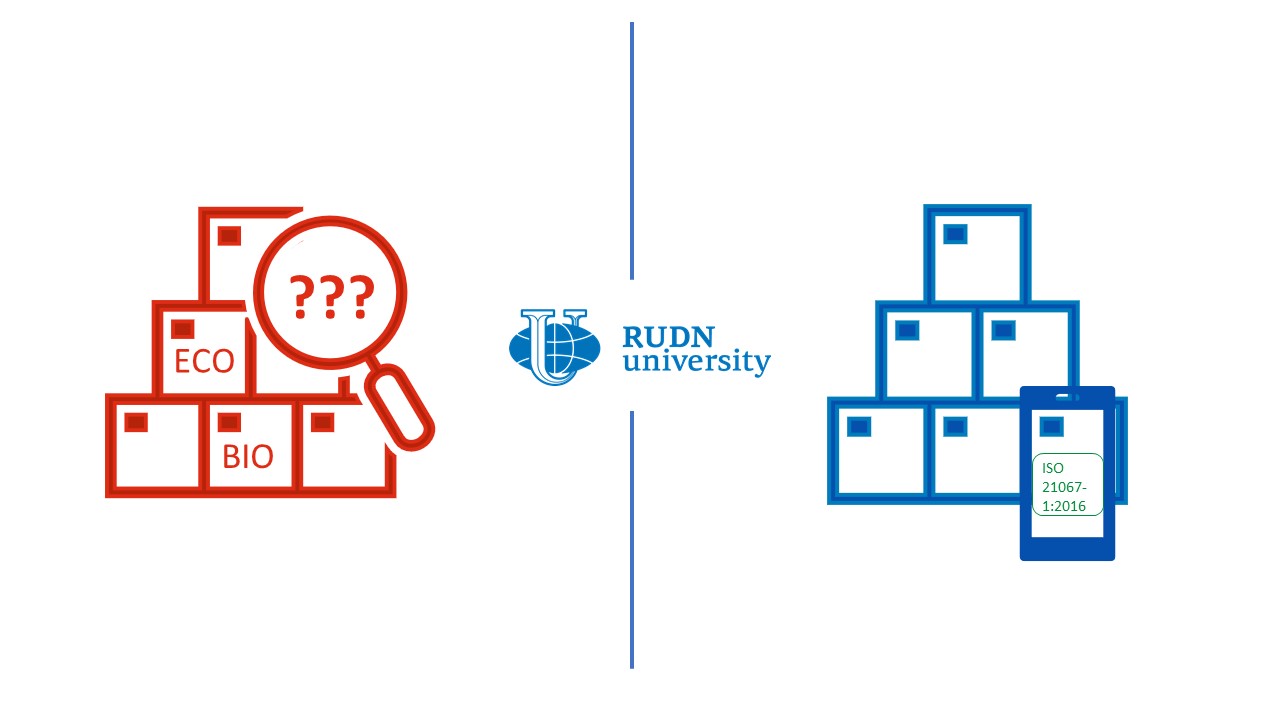RUDN economists found out why eco-labels do not work in Russia, and suggested how to fix it

An important step to reduce waste and pollution is conscious consumption. The consumer must understand what he acquires and what consequences it will have for the environment. To do this, eco-labeling has been introduced all over the world — a special mark on the product that ensures that all stages of its production and use are safe from the point of view of ecology. It is assumed that eco-labeling helps to achieve sustainable economic development along with taxes and other tools. Ecomarks are in almost all countries, but often they are not supported by law, are not reliable, and sometimes even deceive the consumer. For example, in Russia, eco-labeling is fixed only in a few GOSTs. In addition, consumers mostly do not understand labeling, do not pay attention to it or do not know how to use. At the same time, almost no attention is paid to this problem.
“Consciousconsumer behaviour is important for preventing and reducing waste and environmental stress. The daily choice of goods and services by millions of buyers can stimulateor hinder the sustainable development of the world economy. Eco-labelling raises consumer awareness and leads to the emergence of new environmentally friendly goods, technologies and production systems. However,in practice, the abundance of labels and environmental declarations can reduce the understanding of the differences between products and create barriers to trust in information. In Russia, the problem of unreliable informationand about the environmental properties of goods and services is still not recognized. As far as we know, there have been no empirical studies of environmental protection in Russia. labelingand asa tool for sustainable development policy,” — Candidate of Economic Sciences Konstantin Gomonov, Associate Professor of the Department of Economic and Mathematical Modeling of RUDN University.
RUDN economists found out how consumers feel about eco-labeling in Russia, what they know about it and how they use it. To do this, the researchers interviewed 250 people. Then economists studiedhow the manufacturers themselves label their goods by studying products in several popular chain supermarkets.
Among the surveyed consumers, 42% were familiar with the eco-labeling system (in Europe, this value reaches 50-60%). However, when buying, they do not pay attention to it. Therefore, as RUDN economists concluded, manufacturers do not have the proper incentive. The researchers also found an unscrupulous attitude of manufacturers to eco-labeling,theso-called greenwashing.This means either direct forgery of eco-brands, or the use of the inscriptions “eco”, “bio”, “organic” and others, as well as pictures and symbols that mislead the user (after all, there are no studies of the environmental friendliness of the product. it was carried out and it did not receive eco-labeling). To improve the situation, the researchers proposed to develop a smartphone application that would help users recognize eco-labels and take them into account when choosing products.
“Consumers need to be more understanding of eco-labelling. However, instead of offering the distribution of educational materials, we advise developing smartphone apps that will allow buyers to check the compliance of eco-labels on the product with ISO standards directly during the shopping process. We believethat this isa cost-effective and simple way to simultaneously increase consumer awareness of eco-labeling and reduce the likelihood of greenwashing,” — Ph.D. in economics Svetlana Revinova, Associate Professor of the Department of Economic and Mathematical Modeling, RUDN University.
The results are published in the journal Sustainability.
RUDN summarized the results of the scientific competition "Project Start: work of the science club ". Students of the Faculty of Physics, Mathematics and Natural Sciences have created a project for a managed queuing system using a neural network to redistribute resources between 5G segments. How to increase flexibility, make the network fast and inexpensive and reach more users — tell Gebrial Ibram Esam Zekri ("Fundamental Computer Science and Information Technology", Master's degree, II course) and Ksenia Leontieva ("Applied Mathematics and Computer Science", Master's degree, I course).
The National Demographic Report, 2023 Demographic Well-Being of Russian Regions (hereinafter - the National Demographic Report) was prepared by the scientific team of the Institute of Demographic Studies of the Federal Research Center of the Russian Academy of Sciences, the Vologda Scientific Center of the Russian Academy of Sciences, Peoples' Friendship University of Russia, the Center for Family and Demography of the Academy of Sciences of the Republic of Tatarstan, as well as with the participation of leading scientists from the Republic of Bashkortostan, Stavropol Krai, Volgograd, Ivanovo, Kaliningrad, Nizhny Novgorod, Sverdlovsk Oblasts and Khanty-Mansi Autonomous Okrug–Yugra.
RUDN summarized the results of the scientific competition "Project Start: work of the science club ". Students of the Faculty of Physics, Mathematics and Natural Sciences have created a project for a managed queuing system using a neural network to redistribute resources between 5G segments. How to increase flexibility, make the network fast and inexpensive and reach more users — tell Gebrial Ibram Esam Zekri ("Fundamental Computer Science and Information Technology", Master's degree, II course) and Ksenia Leontieva ("Applied Mathematics and Computer Science", Master's degree, I course).
What is your first association with the word “laboratory”? Flasks and beakers? Microscopes and centrifuges? Yes, many of us would answer the same way.
The National Demographic Report, 2023 Demographic Well-Being of Russian Regions (hereinafter - the National Demographic Report) was prepared by the scientific team of the Institute of Demographic Studies of the Federal Research Center of the Russian Academy of Sciences, the Vologda Scientific Center of the Russian Academy of Sciences, Peoples' Friendship University of Russia, the Center for Family and Demography of the Academy of Sciences of the Republic of Tatarstan, as well as with the participation of leading scientists from the Republic of Bashkortostan, Stavropol Krai, Volgograd, Ivanovo, Kaliningrad, Nizhny Novgorod, Sverdlovsk Oblasts and Khanty-Mansi Autonomous Okrug–Yugra.